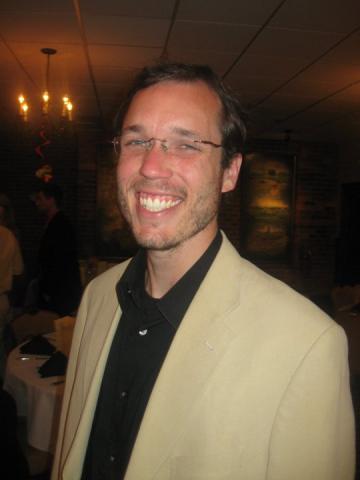
Guy Aiken
Education
- University of Virginia: PhD (2018)
- Wake Forest University: M.Div. studies, 70 of 90 hours (2009-2011)
- University of North Carolina at Charlotte: MA in History (2008)
- Queens University of Charlotte: BA in History (2002)
Dissertation
"Sowing Peace, Reaping War: Quaker Humanitarianism in Germany and Appalachia, 1919-1941," is about the American Friends Service Committee's massive child-feeding programs in Germany and southern Appalachia between the world wars, and its attempt to save Germany's Jews in 1938-9. Chapter 1, “Feeding Germany,” critically examines the AFSC’s American nationalism during its mass feedings of German children even as it tried to maintain a posture of absolute political neutrality. Chapter 2, “Quakerizing Germany,” discusses an AFSC worker’s proposal for converting hundreds of thousands of Germans to Quakerism, and suggests that the explosion of American international humanitarianism during and after the Great War contributed to the liberalization of American Protestant foreign missions. Chapter 3, “Quakers and Labor,” shifts the story to the Appalachian coalfields in the 1920s and argues that Quakerism’s radically democratic ecclesiology accounted for the AFSC’s pragmatic and immediately personal response to class and labor conflict. Chapter 4, “A Quaker New Deal,” uncovers the direct link between the AFSC’s emphasis on “rehabilitation” in the midst of its mass child-feedings in Appalachia during the early 1930s, and the early New Deal’s preference for work-relief over “handouts.” Chapter 5, “The AFSC’s Mission to the Gestapo,” tells the remarkable story of the AFSC’s three-man delegation to the Gestapo in Berlin in December of 1938, a story that lays bare the tragic choices humanitarians often have to make when faced with a violent government whose permission they need in order to save people from that government’s own brutality. Chapter 6, “The Totalitarian Claims of Christ,” examines an important AFSC worker’s ethical mysticism as he came to articulate it after his visit to Nazi Germany during the summer of 1938, and argues that his meeting with the rabbi Abraham Joshua Heschel that summer solidified for him the link between mysticism and the responsibility to alleviate suffering. The unifying theme of the dissertation is the tension between the justice that peace requires and the neutrality that humanitarianism demands—a tension especially poignant for the AFSC, whose ultimate goal was (and is) to eliminate war of any kind.